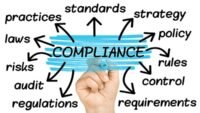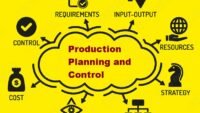As a technical manager in an apparel factory, there are a number of important duties and responsibilities that must be fulfilled in order to ensure the efficient and effective operation of the factory. Some of the key duties of a technical manager in an apparel factory include:
- Overseeing production processes: The technical manager is responsible for overseeing the production processes in the factory to ensure that they are efficient, effective, and in line with industry standards. This may involve managing the design and development of new products, supervising the manufacturing process, and ensuring that quality control measures are in place.
- Managing staff: The technical manager is responsible for managing a team of technical staff, including designers, engineers, and technicians. This may involve setting performance targets, providing training and development opportunities, and ensuring that staff are equipped with the necessary tools and equipment to do their jobs effectively.
- Developing and implementing new technologies: The technical manager is responsible for staying up-to-date with the latest technologies and trends in the apparel industry, and for developing and implementing new technologies and processes to improve the efficiency and competitiveness of the factory.
- Ensuring compliance with industry standards: The technical manager must ensure that the factory is compliant with all relevant industry standards, such as health and safety regulations, environmental regulations, and quality control standards.
- Budgeting and cost management: The technical manager is responsible for managing the budget for the factory, including developing cost estimates for new projects and managing ongoing operational costs.
- Problem solving: The technical manager must be able to quickly and effectively solve any problems that arise in the factory, such as technical issues with equipment or production processes, or staffing issues.
- Collaborating with other departments: The technical manager must work closely with other departments in the factory, such as marketing, sales, and finance, to ensure that all aspects of the business are aligned and working together effectively.
- Quality control: The technical manager is responsible for overseeing the quality control process in the factory to ensure that products meet the required standards and specifications. This may involve conducting regular inspections, developing quality control procedures, and addressing any quality issues that arise.
- Supply chain management: The technical manager must be able to manage the supply chain effectively, ensuring that materials and components are sourced and delivered on time, and that production schedules are met.
- Equipment maintenance: The technical manager is responsible for ensuring that all equipment and machinery in the factory are well-maintained and in good working order. This may involve scheduling regular maintenance and repairs, and coordinating with external service providers as needed.
- Process improvement: The technical manager must be continuously looking for ways to improve processes in the factory, and must be able to identify and implement new processes and technologies that can increase efficiency and competitiveness.
- Project management: The technical manager may be responsible for managing large-scale projects, such as the development of new products or the implementation of new technologies, and must be able to effectively manage all aspects of these projects, including budgeting, scheduling, and resource allocation.
- Training and development: The technical manager must provide training and development opportunities for staff, and must ensure that all staff are equipped with the skills and knowledge they need to perform their jobs effectively.
Overall, the technical manager plays a key role in the success of an apparel factory, and must be able to effectively balance the demands of production, staff management, and innovation to ensure that the factory operates efficiently and effectively.
Md.Mahbub-Ul Islam
RMG Consultant & Reseacher





